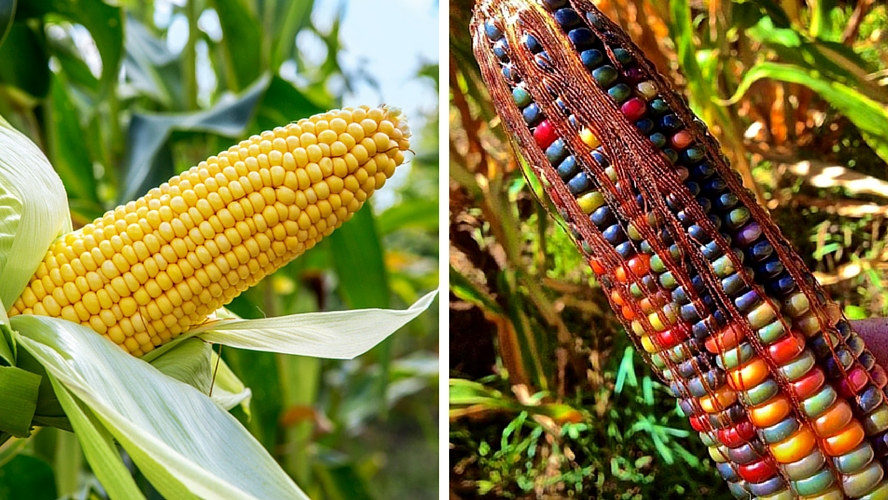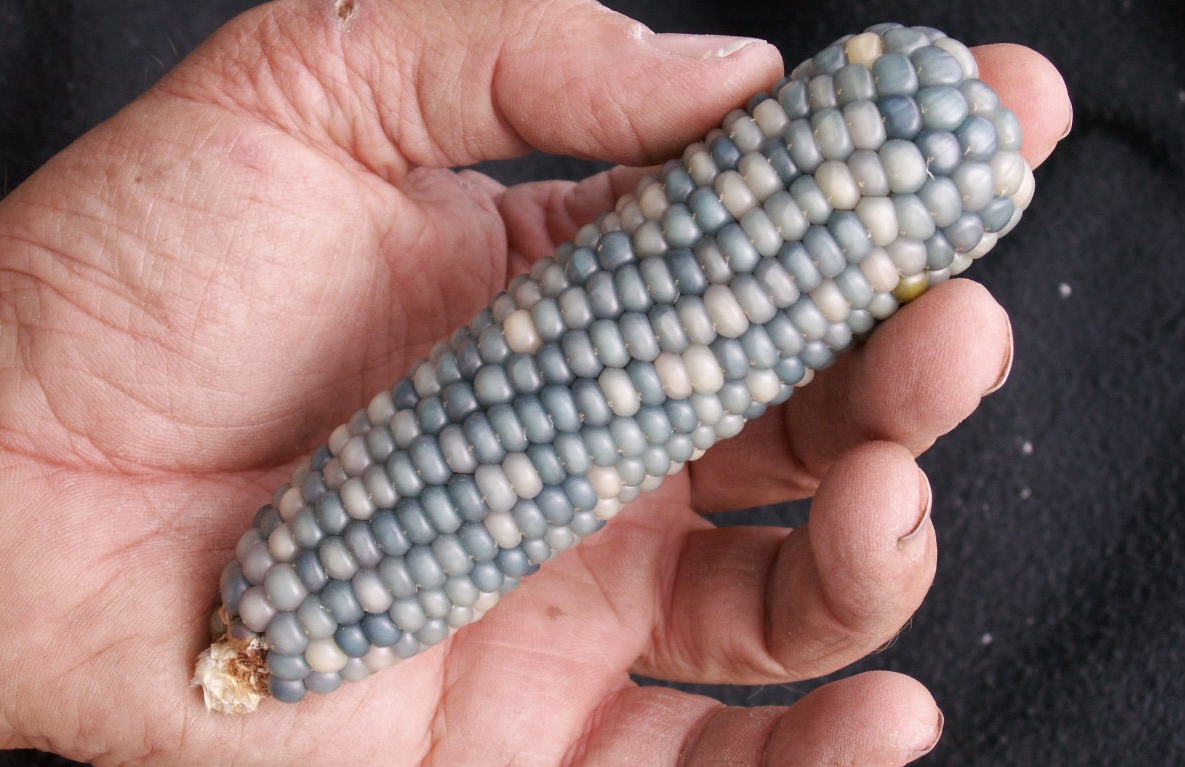It is no coincidence that the vegetables in our supermarkets all have more or less the same shape and the same colours. To come up with such a layout took time… and a large package of genetic transformations!
Take for example the case of corn by looking at these two images. Which of these two species do you think has undergone the most genetic transformations?

We are so used to seeing them in such a way that the yellow granules seem most “ordinary”. And conversely, you could almost swear that the multicolored ear is the result of the crazy manipulations of a capricious agronomist.
However, it is quite the opposite: these ears of a psychedelic strain were in fact obtained thanks to the use of… very old, carefully selected seeds!
Carl Barnes is an Oklahoma farmer who belongs to the Cherokee Indian tribe. One day, when he wanted to reconnect with his roots, he came across a stash of seeds of very old species. Out of curiosity, he decided to plant them… and got colored seeds!

But that’s not all, Carl Barnes had a lot of fun crossing his maize with other more recent varieties…and this is what he got, by the way!
Surprised by what he had extracted from the ground, Carl Barnes immediately shared his discovery with the members of his tribe and with the local farmers.
Since then, this maize variety has been listed under the name glass gemstone corna variety with grains so sparkling that they appear to be polished like “gems”.
However, these grains are neither an invention nor a real discovery. In the 1800s, in Oklahoma, you could only find colored corn (admittedly, less flashy than this). Those who have had the chance to travel to countries where agriculture has remained traditional (for example Madagascar) have surely already come across such varied and colorful corn kernels!
“If there is one plant that has been completely transformed through genetics and successive selections, it’s corn!”
–Intellego
And, good news, a non-profit organization is in charge of selling these ancient seeds to whoever wants (distributing them is the best way to preserve them) Something to surprise its guests… and to encourage ecological diversity!